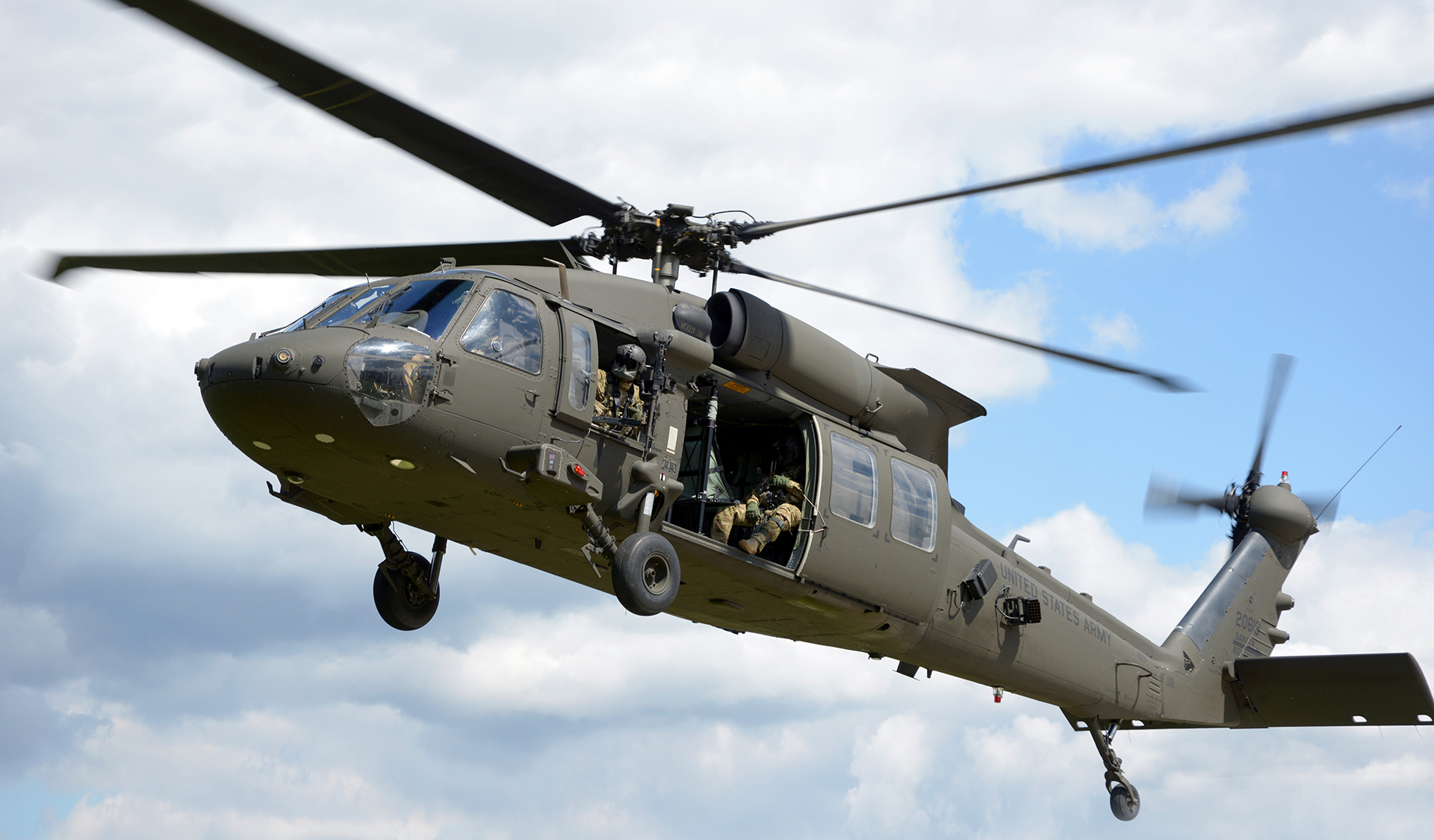UH 60 Helicopter Overview: Whatever You Required to Know
UH 60 Helicopter Overview: Whatever You Required to Know
Blog Article
The Impact of Sustainable Practices on the Future of Aircraft Procedures and Emissions Reduction
As the aeronautics industry faces increasing analysis over its environmental effect, the fostering of sustainable practices emerges as an important path toward future aircraft procedures and discharges decrease. Technologies in sustainable air travel fuels and developments in hybrid propulsion innovations stand at the leading edge of this makeover, promising considerable decreases in greenhouse gas exhausts.

Introduction of Lasting Practices
Sustainable techniques in airplane operations incorporate a variety of techniques intended at lowering ecological impact while keeping operational efficiency. These techniques are essential in the aeronautics sector's commitment to decreasing its carbon impact and sticking to global environmental criteria. Secret initiatives include maximizing trip paths to lower gas intake, enhancing upkeep procedures to make sure aircraft run at peak performance, and carrying out advanced technologies such as winglets and light-weight products that enhance aerodynamics.

Engaging and training staff on sustainability practices also play a crucial function, fostering a society of environmental obligation within companies. Generally, the integration of these lasting practices not just aids decrease emissions but also improves the long-term feasibility of the air travel sector, guaranteeing it fulfills the needs of both consumers and governing bodies while contributing to international sustainability objectives.
Ingenious Fuel Alternatives
Various innovative fuel options are emerging as essential services to decrease the air travel industry's dependence on traditional nonrenewable fuel sources. Amongst these alternatives, Lasting Aviation Gas (SAFs) have gotten substantial attention because of their potential to reduce lifecycle greenhouse gas emissions by approximately 80% compared to conventional jet gas. SAFs are originated from different feedstocks, consisting of waste oils, agricultural residues, and even algae, making them a flexible choice for the sector.
An additional appealing choice is hydrogen fuel, which, when used in gas cells, produces only water vapor as a byproduct. In addition, electrical propulsion systems are being explored, leveraging battery modern technology to power airplane.
Last but not least, biofuels originated from biomass are being checked out, offering an eco-friendly choice that can be combined with typical fuels. Collectively, these ingenious gas choices stand for an important action towards accomplishing a lasting air travel ecological community, aligning with global discharges decrease targets and improving the sector's ecological stewardship.
Technological Improvements in Air Travel

Exactly how can technical developments improve the future of aviation? The assimilation of innovative modern technologies is essential in changing aircraft procedures, improving performance, and reducing exhausts. Developments such as hybrid and electric propulsion systems are at the center, appealing substantial decreases in gas intake and greenhouse gas emissions. These systems take advantage of improvements in battery innovation and energy administration, making it possible for airplane to operate with a lower environmental impact.
Furthermore, the application of sophisticated materials, such as lightweight compounds, contributes to improved aerodynamics and fuel efficiency. Making use of expert system and artificial intelligence in trip operations maximizes course planning and lowers gas melt by making it possible for real-time changes based on climate and website traffic conditions. Additionally, the development of self-governing and from another location piloted airplane systems stands to reinvent freight and traveler transport, potentially boosting efficiency while minimizing human error.
Furthermore, sustainable aviation innovations, including innovative air traffic administration systems, can simplify procedures and reduce blockage, causing lower discharges throughout trip. These improvements collectively represent a standard change in aeronautics, assuring a future where sustainability and operational efficiency are intertwined, consequently supporting the market's dedication to minimizing its ecological impact.

Regulatory Framework and Conformity
Due to the expanding focus on ecological stewardship within the aviation field, the governing framework governing aircraft operations is advancing to advertise lasting methods. Regulative bodies, such as the International Civil Air Travel Organization (ICAO) and various national air travel authorities, you could try this out are presenting rigorous standards aimed at lowering discharges and enhancing operational performance.
These guidelines usually include the adoption of Lasting Air travel Fuel (SAF), which has been recognized as an essential element in attaining reduced carbon impacts. Compliance with these laws needs airlines to execute operational methods and advanced modern technologies, such as optimized flight courses and boosted air web traffic administration, to decrease fuel intake.
In addition, the enforcement of exhausts trading schemes and carbon offsetting campaigns is becoming significantly prevalent, engaging airline companies to keep track of and report their emissions precisely. Non-compliance can cause substantial charges, thus pushing operators to focus on sustainability in their business models.
Inevitably, the evolving governing landscape not only drives innovation and financial investment in eco-friendly modern technologies but likewise fosters a society of liability within the air travel industry. As these structures remain to create, the concentrate on sustainable practices will be essential you could try these out to accomplishing the sector's long-lasting ecological objectives.
Future Patterns in Airplane Workflow
As the air travel market adapts to a significantly rigorous governing setting, future patterns in airplane procedures are readied to concentrate on cutting-edge options that additionally boost sustainability and efficiency - uh 60. Trick developments will likely include the fostering of sophisticated air website traffic administration systems, which utilize real-time data and expert system to optimize trip paths, lowering gas consumption and discharges
An additional substantial trend is the raised integration of sustainable aeronautics fuels (SAFs) These choices to traditional jet fuel, originated from renewable sources, can dramatically reduce lifecycle greenhouse gas exhausts. The industry's commitment to SAFs will likely accelerate as airlines work together with gas manufacturers to guarantee availability and cost-effectiveness.
In addition, the press towards electrification and hybrid propulsion systems is gaining momentum. Arising airplane styles will include these innovations, supplying quieter and extra efficient procedures, specifically for short-haul flights.
Final Thought
Finally, the integration of lasting methods in airplane operations holds significant capacity for exhausts reduction and enhanced efficiency. The fostering of lasting try here aeronautics fuels, combined with developments in hybrid and electric propulsion systems, is crucial for lessening lifecycle greenhouse gas discharges. Furthermore, maximizing trip paths and embracing cutting-edge technologies add to a quieter and a lot more eco-friendly air travel field. Jointly, these initiatives align with worldwide sustainability objectives and pave the way for a greener future in aviation.
Advancements in sustainable aviation fuels and innovations in hybrid propulsion innovations stand at the forefront of this change, promising significant decreases in greenhouse gas discharges.Many ingenious gas options are emerging as crucial remedies to minimize the aeronautics market's reliance on traditional fossil fuels - uh 60. Amongst these choices, Lasting Aeronautics Fuels (SAFs) have obtained considerable focus due to their potential to decrease lifecycle greenhouse gas exhausts by up to 80% contrasted to conventional jet gas.One more substantial pattern is the enhanced integration of lasting air travel fuels (SAFs) The fostering of sustainable aeronautics fuels, combined with innovations in electrical and hybrid propulsion systems, is essential for minimizing lifecycle greenhouse gas emissions
Report this page